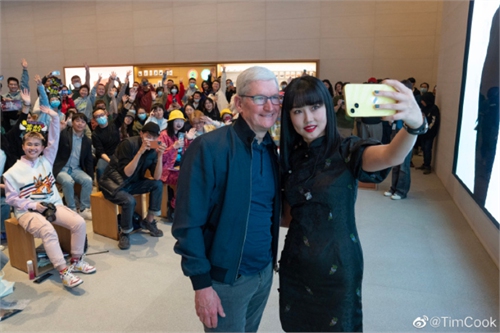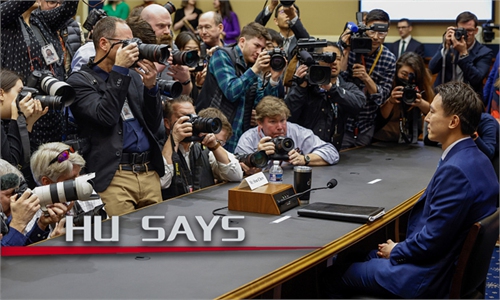
Illustration: Chen Xia/Global Times
Mexican President Andres Manuel Lopez Obrador said on Monday that the popular short-video app TikTok will not be banned by his government and will be given "complete freedom" in the country, according to Reuters. Such voices should be applauded.Obrador's words came after a US congressional hearing on TikTok last week, which was politically manipulated to crack down on the profitable tech firm in an attempt to preserve US' technology supremacy amid heated global competition. The hearing was hegemonic and bullying against a private firm. TikTok has been repeatedly placed under a magnifying glass, but there is still no public evidence to prove that the short-video app could pose a national security threat. TikTok should be treated fairly.
At present, digital technologies are at the forefront of development as they provide a unique chance for countries to accelerate growth and connect citizens to services and jobs. However, there are worries that a widening digital divide threatens to leave developing countries, and especially less-developed ones, further behind. This does not mean developing economies cannot achieve leapfrog development in the digital economy, but this needs those countries, at the very least, to provide a stable, fair, competitive and "completely free" business environment to encourage leading internet companies to invest in.
TikTok is one of the world's most popular social media apps and is available in more than 150 countries and regions. Most of them are developing economies. On the one hand, intensified competition and the market principle of survival of the fittest can help create a dynamic digital ecosystem that gives impetus to economic takeoff, and on the other hand, those emerging markets can provide the fertile soil for TikTok and other competitive internet firms to grow and develop. Such mutually beneficial cooperation should not be a victim to Washington's absurdity and economic bullying.
It is absolutely a correct decision for Mexico not to ban the popular short-video app. Against the backdrop of an escalating Western crackdown on TikTok, the news may be surprising for some Westerners who are still stuck in a Cold War mentality and zero-sum strategic competition, but, there is nothing more normal than this in a country that gives priority to spurring economic growth and is committed to creating a fair business environment.
Mexico's position on TikTok should not be politicized or dragged into games between major powers. An open and fair business environment for international investors comes as good news for not only Chinese firms but also the US and Western companies. Hopefully Mexico's decision would have a good demonstration effect for other economies and countries around the world.
Mexico's current position on TikTok adds to evidence that China and other emerging economies including Mexico share a large potential for cooperation in fields such as digital economy, information technology, artificial intelligence, and other technologies. Facts prove that many emerging countries do not regard the cooperation with China as a zero-sum game in which Chinese companies snatch market share away. Instead, they try to maximize economic opportunities, growth and jobs brought by foreign investment from countries including China.
Of course, this does not mean Chinese companies will not encounter setbacks in those emerging countries. Also, the development of TikTok in Mexico will not all be smooth sailing. However, we believe difficulties can be overcome as long as there is an open and fair business environment for foreign companies.
In recent years, the US has continuously developed its narrow-minded technological nationalism into scientific and technological hegemony, ignoring the widely recognized international rules, and repeatedly resorting to political means to crack down on Chinese high-tech companies.
Against this backdrop, China and a vast number of developing countries have great potential to cooperate in high-tech and emerging industries. Most importantly, pragmatic exchanges and cooperation are mutually beneficial and will make both sides involved more competitive amid heated global competition.
The author is a reporter with the Global Times. bizopinion@globaltimes.com.cn



